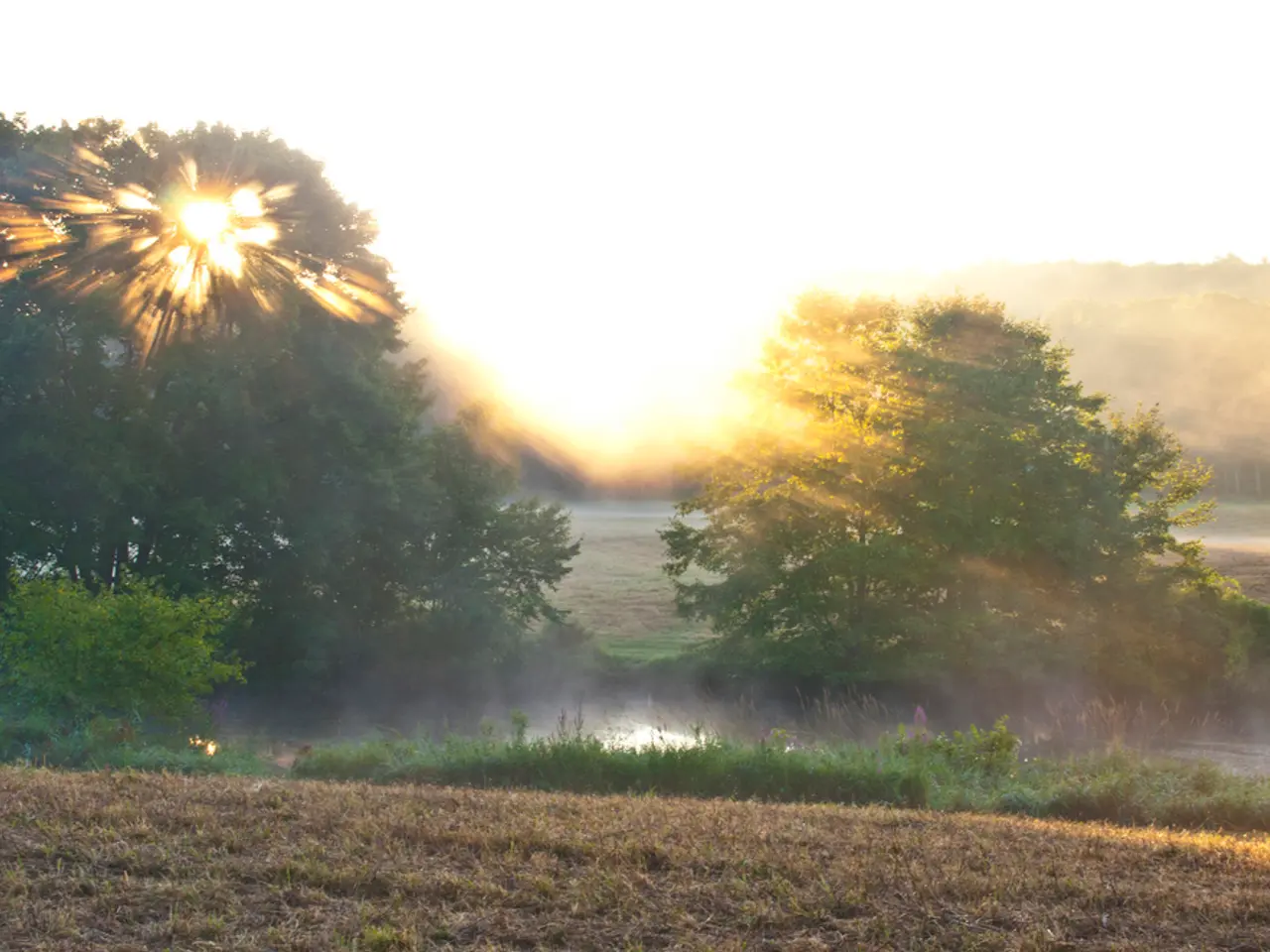Increasing gains: Alvarez-Dominguez of Brunel discusses the future prospects of natural assets
Brunel Pension Partnership, a £35.9bn local government pension pool based in Bristol, UK, is broadening its investment horizon beyond traditional renewable energy projects. The pension fund is actively expanding its natural capital portfolio to include biodiversity credits, water-related assets, and other sustainable investment opportunities.
Jaime Alvarez-Dominguez, the portfolio manager leading Brunel's infrastructure team, has been at the forefront of this strategic shift. Alvarez-Dominguez emphasizes the need for integrity in carbon credits to secure sustainable returns, as the team focuses on natural capital investments, including carbon markets.
Recently, Brunel announced a new natural capital mandate that could include biodiversity credits, water-related assets, and other natural capital-related investments. This move signifies a clear intent to grow Brunel's presence in this asset class.
One of Brunel's early investments in the carbon market was with Aurora, a US forestry credits firm. In the third vintage, the fund invested in Bluesource Sustainable Forest Company, now known as Aurora. The investment was backed by 600,000 hectares of mixed hardwood with over 120 species of trees, with the aim of reducing harvesting by 50% and generating additional revenue through carbon credits.
However, Brunel's infrastructure team has expressed concerns about concentration risk due to the scale of exposure to renewables. To address this, the team has been speaking to partner funds about broadening the remit of its infrastructure strategies, including transition assets such as battery storage, electrification of transport, district heating, energy efficiency, and natural capital.
Alvarez-Dominguez stresses the importance of strong standards, credible certification, and alignment with science-based targets in the carbon market. He also emphasizes that carbon credits should only be used for residual emissions, not as a substitute for genuine reductions.
The market for carbon credits has become more crowded, and the team has questioned whether partner funds would still benefit from an optimal risk-return balance. Despite these concerns, Alvarez-Dominguez remains optimistic about the broader outlook for carbon markets, citing demand from large corporates with net zero targets as a key driver.
Brunel's approach is part of a wider strategy to diversify its infrastructure and real assets allocation, moving beyond traditional renewable energy projects into natural assets, which offer both environmental benefits and financial returns.
In addition to its investments in carbon credits, Brunel has also invested in Clear Frontier Meadowlark I, a first-time agriculture fund that includes long-term land leases to family farmers willing to transition to organic.
As for the financial implications of the Microsoft deal, it remains unclear at this time. The UK government is pushing to consolidate Local Government Pension Scheme (LGPS) assets, potentially dissolving Brunel or merging it into another pool in the coming months. Jaime Alvarez-Dominguez is already thinking about the next chapter for Brunel, suggesting there may yet be a new mandate separate from infrastructure for natural capital.
- Brunel Pension Partnership, recognizing the potential of environmental science, is planning to invest in a new natural capital mandate that encompasses biodiversity credits, water-related assets, and other natural capital-related investments, aiming to expand and solidify its presence in this asset class.
- Jaime Alvarez-Dominguez, Brunel's portfolio manager, advocates for adherence to strong standards, credible certification, and alignment with science-based targets when investing in carbon credits, emphasizing their use for residual emissions, not as a substitute for genuine reductions.
- As part of a comprehensive strategy to diversify its investments, Brunel's approach extends beyond traditional renewable energy projects into other real assets, such as agriculture, as evidenced by its investment in Clear Frontier Meadowlark I, an agriculture fund that leases land to family farmers for organic farming, offering both environmental benefits and financial returns.




